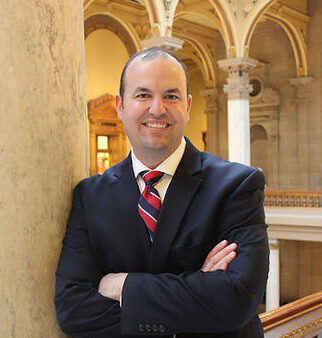Using Race as a Basis for Advancement in the Church Shows Partiality and Is a Form of Racism
In today’s society, discussions about identity, diversity, and justice often blur the lines between race and culture. From a theological and biblical worldview, it is essential to distinguish clearly between these two concepts to rightly understand humanity, resist error, and proclaim the gospel with truth and grace. Scripture speaks with clarity about the nature of humanity, the role of culture, and how Christians should judge what is right and wrong.
This article seeks to clarify the distinction between race and culture and provide a biblical foundation for thinking about both.
Race, as commonly understood, is a classification based on physical traits such as skin color, facial features, and hair type. Scientifically, these distinctions are superficial and have no bearing on a person’s value or capability. However, in the modern era, the concept of race became entangled with Darwinian evolution, which wrongly suggested that some human groups were more “evolved” than others. This pseudo-scientific idea laid a foundation for much of the racism and eugenics of the 19th and 20th centuries.
From a biblical standpoint, racism is categorically false. All humans are created in the image of God (Genesis 1:27), descended from one man (Acts 17:26), and are equally worthy of dignity and respect. To judge someone based on their race is not only unscientific—it is sinful. Racism, by definition, assigns value to individuals based on external, inherited characteristics and is rooted in a dehumanizing worldview. It denies the imago Dei and undermines the gospel of Christ that offers salvation to all people, regardless of their background (Galatians 3:28).
Culture, by contrast, refers to the beliefs, customs, behaviors, and values of a particular group of people. Unlike race, which is inherited and fixed, culture is learned and practiced. Cultures are shaped by moral choices, religious convictions, historical experiences, and social institutions.
From a biblical perspective, cultures can and should be judged (Luke 12:57). Scripture provides a standard for righteousness, and cultures that uphold justice, truth, and love are to be affirmed. Cultures that promote dishonesty, perversion, violence, or idolatry are to be challenged. In this sense, not all cultures are morally equivalent. Some are more aligned with God’s revealed will than others. Therefore, it is proper and necessary for Christians to assess cultures according to the truth of God’s Word.
One of the clearest biblical examples of cultural critique is found in Titus 1:12-13, where the Apostle Paul writes, “One of the Cretans, a prophet of their own, said, ‘Cretans are always liars, evil beasts, lazy gluttons.’ This testimony is true.” Here, Paul acknowledges a negative cultural pattern among the people of Crete, not based on their race or ethnicity, but on their moral behavior. He does so in the context of instructing church leaders to rebuke false teachers and promote godly conduct.
This passage shows that Scripture allows for—and even demands—evaluations of culture (Isaiah 62:6). Cultures can be judged by God when they consistently rebel against His truth. At the same time, cultures can also reflect God’s revealed grace and be celebrated for what is good, beautiful, and just within them.
Racism is always wrong because it assumes inherent superiority or inferiority based on biology. It is rooted in the flawed logic of evolution and the sin of partiality, which Scripture condemns (James 2:1-9). Judging culture, however, is not only permitted—it is required. Christians are called to bring every thought and every practice into submission to Christ (2 Corinthians 10:5), including the patterns and norms of the cultures in which they live.
Evangelism, discipleship, and apologetics all require cultural discernment. The gospel must confront sin wherever it appears, whether in the individual heart or the collective conscience of a people group. Cultural judgment is not about superiority but about truth and transformation (1 Corinthians 4:7).
At times, race and culture overlap, particularly when cultural habits are passed down through biological families or ethnic communities. However, we must resist the temptation to conflate the two. For example, aspects of American culture—whether in politics, entertainment, education, or even religion—can be critiqued for their conformity (or lack thereof) to God’s biblical standard. Similarly, subcultures based on socioeconomic status, regional habits, or generational norms can be evaluated through a scriptural lens. This evaluation must be done with humility, truth, and the hope of redemption.
Unfortunately, some Christian institutions and their leaders have prioritized and celebrated racial diversity, which contradicts biblical values. Leaders who emphasize outward appearance should be lovingly corrected. Even the prophet Samuel once made this mistake when he judged Jesse’s sons by their appearance, but the Lord reminded him that God looks at the heart (1 Samuel 16:7). We must not follow Samuel’s error. Instead, let us seek and elevate Christlike character above external traits. God blesses holiness, not skin tones.
Churches, Christian institutions, and their leaders are called to cultivate a spiritual culture that aligns with the commands of Scripture. Leadership and promotion within the body of Christ should be grounded in a person’s faithfulness to the Lord and the spiritual gifts He provides. Race is not a biblical qualification, and using it as a basis for advancement reflects partiality and a form of racism. God’s people must reject worldly racial ideologies and be shaped by the truth of God’s Word (1 Peter 1:14-16).
Distinguishing between race and culture is essential for faithful Christian witness. Race, as a concept, should never be the basis of judgment, because all people are made in the image of God. On the other hand, culture must be assessed and, when necessary, confronted.
The church is called to proclaim a gospel that transcends all cultures and transforms them towards righteousness. Only by holding fast to this distinction can we speak the truth with discernment, preach the gospel with wisdom, and persuasively call all people everywhere to repent and follow Christ (1 Chronicles 12:32; 2 Corinthians 5:11).
Share This Story

